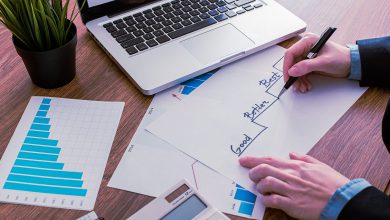What do economists think about buying a house versus renting it?
I assume here that the purchase is aimed at living in the property, not renting it or investing it, because the calculations for this differ.

What do economists think about buying a house versus renting it?
I assume here that the purchase is aimed at living in the property, not renting it or investing it, because the calculations for this differ.
In general, this depends on many factors. In the beginning, if you want to buy, you must be able to buy (you have all the money ready, or you have part of it and the bank is ready to give you a loan). If you can’t buy, there’s nothing to compare with: you have to rent because you can’t buy.
Suppose you are able to buy. Now we have to look at other things: First, will you pay the full price or pay part and borrow the rest? Secondly, if we assume that you will borrow the remainder, how much will you borrow (80%? 40%? 20?)? Third, if you borrow, will you borrow from a bank or will you borrow from your friends and relatives? Fourth, how will you repay the loan? If you are going to pay it back from your personal salary, will the monthly payments be equal to the rent, more or less? Fifthly, how long do you intend to stay in this house of yours, a year, ten years, if it is the house of a lifetime? Sixth, if you don’t buy, what will you do with the money? Will you invest it in something else, or will you spend it, or will you open a store to work in, or any other business?
Experts say that if you intend to sell the house after a period, then this period must not be less than seven years, because if you sell it after less than seven years, the rent will most likely be cheaper after you calculate the monthly payments, the down payment, taxes, and the change in the property price during these years. However, seven is not a magic number, it is a general average and things vary depending on the city, the real estate market, the price of the house and the type of loan that you got.
The amount you have available and the loan you can get also influence. For example, if you have a large amount of money that covers the price of the entire property, then this is a good thing, as it means that you will not need to think about monthly payments (no installments or rent) or about paying off a debt, and the house will still benefit your children after you. On the other hand, you can buy a house allowance, two or three, all in installments, you live in one, and you rent the rest, so the remaining rent covers at least part of what you owe from the installments of the house you live in, and in the future you will have an additional source of income, but any debt you take is a risk and you may lose everything.
Then your age and responsibilities also have an impact. If you are twenty-five and not married, then the risk is easy, because if you lose after ten years for some reason, you are still young and you can start from iron, but if you are fifty-five and you have several children who need university tuition and other expenses, and you will retire after ten or fifteen years, then start Again after a decade is out of the question.
On the other hand, if you have enough to buy one house in installments, then you should look at your ability to pay the installments, not only today but also in the future. If you can do that, trust in God because you may not be able to in the future, otherwise not.
For most people in most of the world the house they own is most of their wealth, so it is better to have property than not to have but the calculation of that depends on your circumstances more than anything else.
It depends:
Do you now have the price of the house?
If you don’t decide to buy the house, how will you invest the money?
Are investment returns sufficient to pay rent and other expenses?
What are the real estate market trends? Stagnation or recovery?
How set interest rates on deposits?




